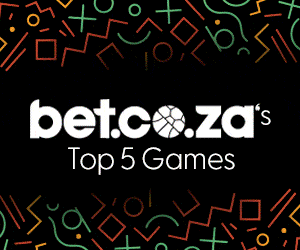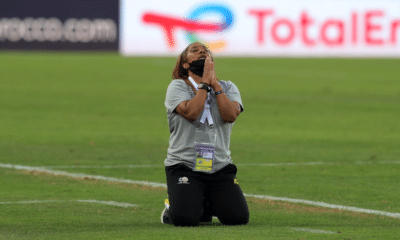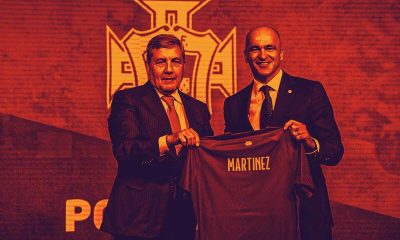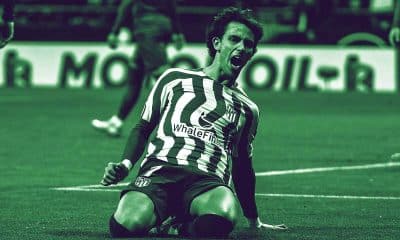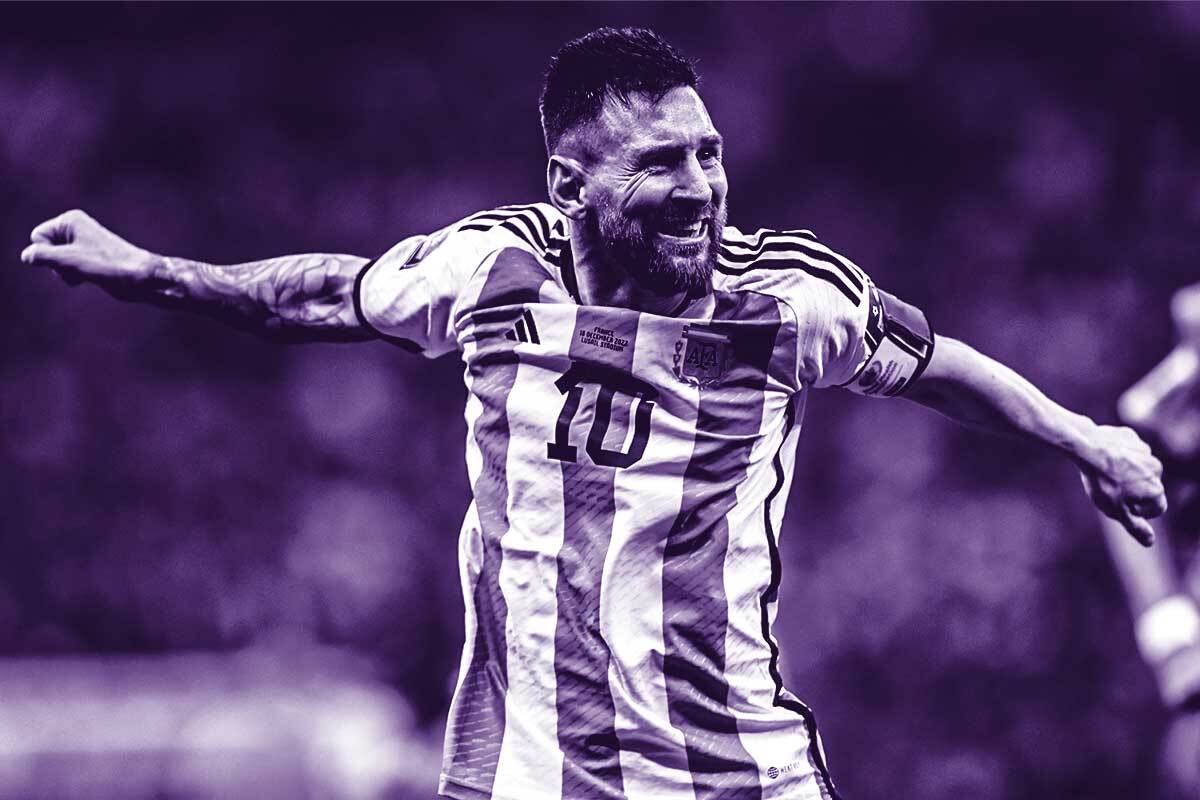
On December 10, we lost a titan of the journalism industry in Grant Wahl. Grant was a multifaceted writer who could cover just about every sport on the planet, but his true niche was football. His writing inspired countless Americans like me to follow their passion and delve deeper into the beautiful game. He was someone who spoke truth to power, who relentlessly researched his topics and never acquiesced to the temptation of clickbait – above all, he was a trailblazer who fostered a new appreciation for the sport in this country, who taught us that no niche is too obscure, who opened doors to so many, who put football on another pedestal. I am forever indebted to him for inspiring myself and so many other young journalists to pursue their passion and realize their dreams – thank you, Grant.
Today, we’re taking a look at the best team of the 2022 FIFA World Cup on Bet Central:
GK: Dominik Livaković
When Croatia defeated England in the 2018 World Cup semifinals, few could have imagined that a mere four years later, they’d be back amongst the final four of the 2022 World Cup in Qatar. Not with key players like Ivan Rakitić and Mario Mandžukić retiring from international duty and others like Luka Modrić and Ivan Perišić entering the final years of their prime. And yet, they would finish third thanks in large part to the stellar performances of Dinamo Zagreb goalkeeper Dominik Livaković. The 27-year-old saved three penalties to lead Croatia to a shootout victory against Japan, the third goalkeeper to do so after Ricardo (2006) and Danijel Subašić (2018), who retired after Croatia’s second-place finish in 2018. He would follow that up with a sensational performance against Brazil, making 11 saves and saving Rodrygo’s penalty as Croatia pulled off a shock upset win, before losing to Argentina and beating Morocco in the third-place match. Livaković stood tall and led by example as the Vatreni proved that 2018 was no fluke, and after spending the entirety of his career in Croatia thus far, he could be set for a big move in 2023 following his sensational performances in Qatar.
Honourable mentions: Emiliano Martínez, Yassine Bounou, Wojciech Szczęsny
RB: Achraf Hakimi
It has been quite the ascent for Achraf Hakimi. At 19 years old, he had already become the first Moroccan player to win the UEFA Champions League and started for Morocco in their first World Cup in 20 years. Following his impressive showing in Russia, he would leave Madrid for the first time in his career and emerged as one of Europe’s finest wingbacks across a two-year loan spell at Borussia Dortmund, before moving to Inter Milan on a permanent deal and playing a key role in their Scudetto. He would spend just one year in Italy before heading to Paris Saint-Germain, where he has solidified himself as a regular at right back and helped solve a position that has caused headaches to many PSG managers in the past. Having played a vital role in PSG’s undefeated start to the season, he jetted off for Qatar and delivered a sensational display, combining in the final third with Hakim Ziyech, marauding down the right flank, and grabbing an assist against Canada, whilst also showcasing his defensive knowhow for a Morocco side that conceded just once – an own goal against Canada – across their first five games. Morocco have made history by becoming the first African side to reach the World Cup semifinals, and Hakimi has proven indispensable in their feat, completing the most tackles per game in the tournament with 3.7. At 24 years old, he has firmly established himself as one of the finest right-backs in world football.
Honourable mentions: Josip Juranović, Nahuel Molina, Ramin Rezaeian
CB: Joško Gvardiol
This may very well have been the final World Cup for various Croatian stars like Luka Modrić (37) and Ivan Perišić (33), but one player is only just getting started is Joško Gvardiol. Having risen through Dinamo Zagreb’s academy, Gvardiol earned a €16 million move to RB Leipzig at the start of the 2020/21 season and made his debut for Croatia’s national team shortly after, playing for Croatia in the U-21 Euros before joining up with the senior team and becoming the youngest player to play for Croatia in a major tournament at 19 years, four months and 21 days. He would start all four matches in the Euros and impress at the unnatural position of left-back, before locking down a starting spot in Germany and extending his contract with the club in September after Leipzig rejected a €90 million bid from Chelsea. Playing with a face mask after breaking his nose shortly before the tournament, Gvardiol would start alongside Dejan Lovren in central defence, relegating vice-captain Domagoj Vida to the bench, as Croatia picked up one victory and three clean sheets to advance to the knockout round before beating Japan and Brazil on penalties. From his last-ditch tackle on Romelu Lukaku to prevent a surefire goal, to his ability to launch attacks with his pinpoint passes, from his composure and timing of his jumps to his goal against Morocco in the third-place match, Gvardiol has emerged as the epitome of the modern-day centre back at 20 years old, and with a contract until 2027, it’s only a matter of time before he breaks Harry Maguire’s record and becomes the most expensive centre back of all time.
Honourable mentions: Romain Saïss, Harry Maguire, Dayot Upamecano, Nathan Aké
CB: Nicolás Otamendi
Argentina’s World Cup campaign was overshadowed by the looming storyline of Lionel Messi’s final chance to win the World Cup, but it was also last-chance saloon for Ángel Di María and Nicolás Otamendi, both 34. Whilst Di María justified his surprise start in the final with a sensational performance that saw him draw a penalty and double the lead against France, Otamendi remained a regular in central defence alongside Cristian Romero as Argentina bounced back from an opening day defeat to Saudi Arabia and advanced to the final. Having played a key role in defence to lead Benfica to an undefeated start to the campaign, Otamendi picked up where he left off, leading by example with the same warrior-like mentality we have become accustomed to at Porto, Valencia, Manchester City and Benfica, winning more aerial duels than any other defender (21), keeping the likes of Robert Lewandowski and Olivier Giroud in check and enabling Argentina to maintain their highline and hold onto possession with his ability to step up and anticipate danger and filter passes between the lines. Whilst many expected him to play second-fiddle to Romero and Lisandro Martínez, Otamendi proved more important than ever in securing Argentina’s third star, capping off his 100th appearance for the Albiceleste by winning the World Cup Final in Lusail.
Honourable mentions: Cristian Romero, Ibrahima Konaté, Harry Souttar, Dejan Lovren, Thiago Silva
LB: Theo Hernández
France’s 2022 World Cup campaign began with a whimper, as Australia took the lead within 9 minutes in a play that would see Lucas Hernández – a starter at left back in their 2018 campaign – rupture his ACL. Theo Hernández came off the bench, the second time a player would come on for his brother in a World Cup match after Sofyan Amrabat replaced Nordin Amrabat against Iran in 2018. The latest injury blow for France after Paul Pogba, Christopher Nkunku and various others, this proved to be a blessing in disguise for Les Bleus – Theo provided an assist and four key passes as France beat Australia 4-1, before following it up with an assist in a 2-1 win against Denmark and grabbing the opening goal against Morocco to lead France to the final. As opposed to Lucas, a hybrid of a left-back and a centre-back, Theo is an attack-minded left-back whose dynamism and speed proved crucial in France’s attacking potency and allowed Kylian Mbappé to tuck in and explore more central areas. At 25 years old, he has led Deportivo Alavés to their first Copa del Rey Final in 91 years, won the Champions League with Real Madrid, and played a crucial role in Milan’s Scudetto triumph with 5 goals and 6 assists. Whilst he was exposed defensively on various occasions in Qatar, his physical prowess and efficiency in the final third proved vital in France reaching their second-straight World Cup Final, and he looks set to spend the next decade competing for Les Bleus’ starting left-back position with his older brother. Talk about an awkward family dinner.
Honourable mentions: Luke Shaw, Jordi Alba, Raphaël Guerreiro
DM: Sofyan Amrabat
“It’s been a long time since I’ve seen a player like me, but I saw him at the World Cup. He moved me a lot, he looked like me when I was playing at 27,”-Gennaro Gattuso.
When watching Sofyan Amrabat’s performances at the World Cup, it’s hard not to draw comparisons with the legendary Italian midfielder. The Dutch-born Morocco international served as the rock in midfield for the Atlas Lions, protecting his centre backs and helping to distribute the ball and transition from the first phase of build-up to the second phase. The 26-year-old was tasked with a far more defensive role than his box-to-box duties at Fiorentina and executed it to perfection, allowing Morocco to soak up pressure before hitting on the counter, constantly sniffing out danger and exhibiting a brilliant positional awareness that enabled his midfield partners Azzedine Ounahi and Selim Amallah far more freedom to push forward. After leading Morocco to a first-place finish in their group, Amrabat looked at risk to miss their Round of 16 fixture with injury, but he nevertheless played the full 120 minutes, winning 7 out of 7 ground duels, winning three fouls, and completing four tackles as Walid Regragui’s side knocked La Roja out of the competition on penalties. “Yesterday until 3am I stayed up with the physiotherapist trying to do the impossible. Today I played with injections, but I couldn’t leave my teammates and a whole country. I’m really happy and proud.” He has served as Morocco’s midfield anchor, capable of weaving passes together and coming out on top in 50-50s, and after holding his own in the centre of the pitch against the likes of Pedri, Kevin De Bruyne and Bernardo Silva, he could be set to reap the rewards with a January transfer.
Honourable mentions: Aurélien Tchouaméni, Frenkie de Jong, Casemiro, Tyler Adams
CM: Enzo Fernández
The phrase ‘Eureka moment’ refers to a moment of sudden, triumphant discovery, inspiration, or insight. It’s not often that we can find a Eureka moment in football, where a manager has an abrupt realization that changes the course of a game, much less so the course of an entire tournament, and ultimately, the course of football history. But on November 26, that moment came for Lionel Scaloni. Argentina had lost their first match to Saudi Arabia and found themselves level with Mexico after 57 minutes when Scaloni brought on Enzo Fernández for Guido Pizarro. Enzo had made just four substitute appearances for Argentina since making his international debut in September, but he would take the opportunity by the scruff of his neck, winning 3 out of 5 ground duels and capping it off with a goal to secure a 2-0 win. From that point on, Enzo never lost his starting spot, even when he scored an own goal against Australia and missed his penalty against the Netherlands – he was simply too good to be dropped. The 21-year-old ran the show in midfield, constantly anticipating danger and launching himself into tackles with the gusto of a player who was born and bred in the physically demanding Argentine Primera División, launching transitions with his eye-of-the-needle passing and impressive decision-making, and keeping possession ticking as the Albiceleste’s deep-lying playmaker. He has become the third player to win the Young Player of the Tournament award and the World Cup in the same year after Pelé (1958) and Kylian Mbappé (2018), and alongside his Benfica teammate Nicolás Otamendi, he has become the first Primeira Liga player to win the World Cup. He has not lost a single match in all competitions since June when he was still at River Plate, and his stellar display in Qatar could see him end his time at Benfica after just six months with Chelsea looming as a potential suitor.
Honourable mentions: Luka Modrić, Jude Bellingham, Alexis Mac Allister
CM: Azzedine Ounahi
The month has barely started, and yet, we’ve already seen several players who participated in the 2022 World Cup earn noticeable transfers: Polish fullback Bartosz Bereszyński has joined Serie A leaders Napoli, Cameroonian midfielder Pierre Kunde has moved to Bundesliga side VfL Bochum on loan from Olympiakos, whilst Dutch jack-of-all-trades Daley Blind has joined Bayern Munich on a free transfer. The latest player to earn a move could be Azzedine Ounahi, with Leeds, Leicester and Napoli reportedly interested in the 22-year-old.
It has been a whirlwind 12 months for Ounahi – one of the few starters in Morocco’s line-up who was born and raised in the country. He made his debut for the Atlas Lions in January 2022 during the AFCON and scored a brace two months later against Congo to lead them to World Cup qualification, but it was during his time in Qatar that has talent was fully on display. The lanky midfielder is a box-to-box dynamo, capable of tracking back and launching himself into 50-50s and coming out with possession, but he is equally capable of manoeuvring his way past a sea of opponents and driving forward with the ball before releasing a teammate with a precise through ball. His tough-tackling ability and his aggression make him a complete performer in the centre of the pitch, and his capability of moving with the ball glued to his feet saw him earn the praise of ex-Spain manager Luis Enrique, who remarked after his side’s elimination to Morocco: “I was pleasantly surprised by Morocco’s #8. Where did this kid come from? He can really play. He surprised me.” With Angers dead last in Ligue 1, it is unlikely that Ounahi will be staying at the Stade Raymond Kopa for much longer – he’s a gem of a midfielder who’s waiting to be polished.
Honourable mentions: Adrien Rabiot, Mateo Kovačić, Rodrigo de Paul
AM: Antoine Griezmann
At 31 years of age, Antoine Griezmann has delivered an incredible repertoire for club and country. He first made waves as a winger for Real Sociedad, scoring 16 goals and 7 assists in 35 league matches in 2013/14 and earning a move to Atlético Madrid, where he reached world-class levels under Diego Simeone as a second striker, racking up 94 goals and 18 assists in 180 appearances. He has operated in a variety of roles for his clubs as well as the France national team, from the false 9 to the wide forward, consistently showcasing his grit and hard work off the ball as well as his technical quality. Having operated as an attacking midfielder in their victorious 2018 campaign, playing in between Kylian Mbappé, Olivier Giroud and Blaise Matuidi as the facilitator in France’s attack, Didier Deschamps elected to reposition himself as a deeper midfielder to cope with the absences of Paul Pogba and N’Golo Kanté, a decision that worked like a charm. Whilst Griezmann has not scored for France since November 2021, he has reminded viewers why he is one of their most indispensable players with 3 assists, 3.1 key passes per game and 7 big chances created. Whether playing in a 4-4-2, a 4-3-3 or a 4-2-3-1, Griezmann knows where to move, where to pass the ball to, and how to link up and progress the ball into the final third, a jack-of-all-trades who has proven crucial in France’s dominance under Deschamps.
Honourable mentions: Bruno Fernandes, Bukayo Saka, Ivan Perišić, Jamal Musiala
CF: Kylian Mbappé
He may not have added a second World Cup to his trophy cabinet, but Kylian Mbappé has delivered another elite campaign for Les Bleus, stepping up in the midst of a never-ending injury crisis and making a case for himself as the best player in world football. Four of the past five defending champions were eliminated in the group stage, but Mbappé ensured that France were able to cruise into the knockout round. He was involved in three of France’s four goals in their 4-1 comeback victory against Australia, he scored a brace against Denmark to book their ticket for the Round of 16, where he would score another brace against Poland, where he would set up Olivier Giroud’s opening goal, rifle a shot from 16 yards out into the roof of the net, and curl a shot into the top corner to seal the victory. Whilst his influence waned in the following two matches – he did contribute to Randal Kolo Muani’s goal to seal the 2-0 win against Morocco – he stepped up in the final with two goals in quick succession to turn around a one-sided affair and force the match into extra time. He won the Golden Boot with an astonishing eight goals, became the first player to score a hat-trick in a World Cup Final since Geoff Hurst in 1966, became the all-time leading scorer in World Cup Finals with four goals, and went level with Pelé on 12 World Cup goals. At 24 years of age, it seems a matter of when, rather than if, before he surpasses Miroslav Klose’s 16-goal tally as the all-time leading scorer in World Cup history.
Honourable mentions: Cody Gakpo, João Félix, Olivier Giroud
CF: Lionel Messi
The 2022 World Cup Final was more than just one of the most thrilling sporting events of this century, it was a fixture between two teams fighting for their third star, one side looking to establish themselves as the sole dominant force in world football, one looking to claim their first championship since 1986. It was a fixture between the greatest player of the past 15 years and the (likely) greatest player of the next 15 years – think ‘98 Michael Jordan going up against a 23-year-old Lebron James in Game 7 of the NBA Finals. Oh, and one more thing: they’re teammates on the same club team.
Lionel Messi and Kylian Mbappé went blow for blow for the trophy, but ultimately, it was Messi who claimed the sole trophy that was missing from his display case. He became the all-time leading appearance maker in the World Cup (26) and scored 7 goals in 7 matches, overtaking Pelé as the player with the most direct goal contributions at the tournament (13 goals and 8 assists), and becoming the first player to win two Golden Ball awards in the World Cup as well as the first player since Romário in 1994 to win the Golden Ball as well as the World Cup. With five Man of the Match awards, Messi proved that he is still one of the game’s finest footballers at 35 years of age, and after captaining the Albiceleste to yet another trophy, he has accomplished the thing missing from his CV. There can be no more debate: Lionel Messi is the greatest player of his generation.
Honourable mentions: Julián Álvarez, Hakim Ziyech, Harry Kane, Ángel Di María















